Merwin and Regina Fernandes @ Savera Naturals
It was close to two decades ago, in 2007 to be precise, that Merwin Fernandes quit the corporate rat race and decided to get into farming. “I took early retirement from Infosys as I wanted to move away from the consumerist urban-corporate life to a simple life more aligned and in harmony with nature,” says Merwin, 64.
A farmer at Savera Naturals
| Photo Credit:
Special Arrangement
Born to a family with a farming background and roots in the Malnad/western ghats and coastal regions, his first attempt at farming was at a farm in Chickmagalur, Merwin’s birthplace, which he bought in 2007. “It somehow did not work out, as this initial foray was more driven by romanticism and not grounded in reality,” he reveals, adding how he and his wife Regina went on to sell that farm and later settled on their current farm in Sakleshpura, bought in 2012.
“As we had no prior experience, other than a commitment to organic farming, it has been a journey of learning on the go — by observation and experience, from natural farming gurus, fellow farmers, courses, books, and the internet,” says Merwin of his 20-acre farm where over 100 crops (fruits, vegetables, spices) are cultivated.
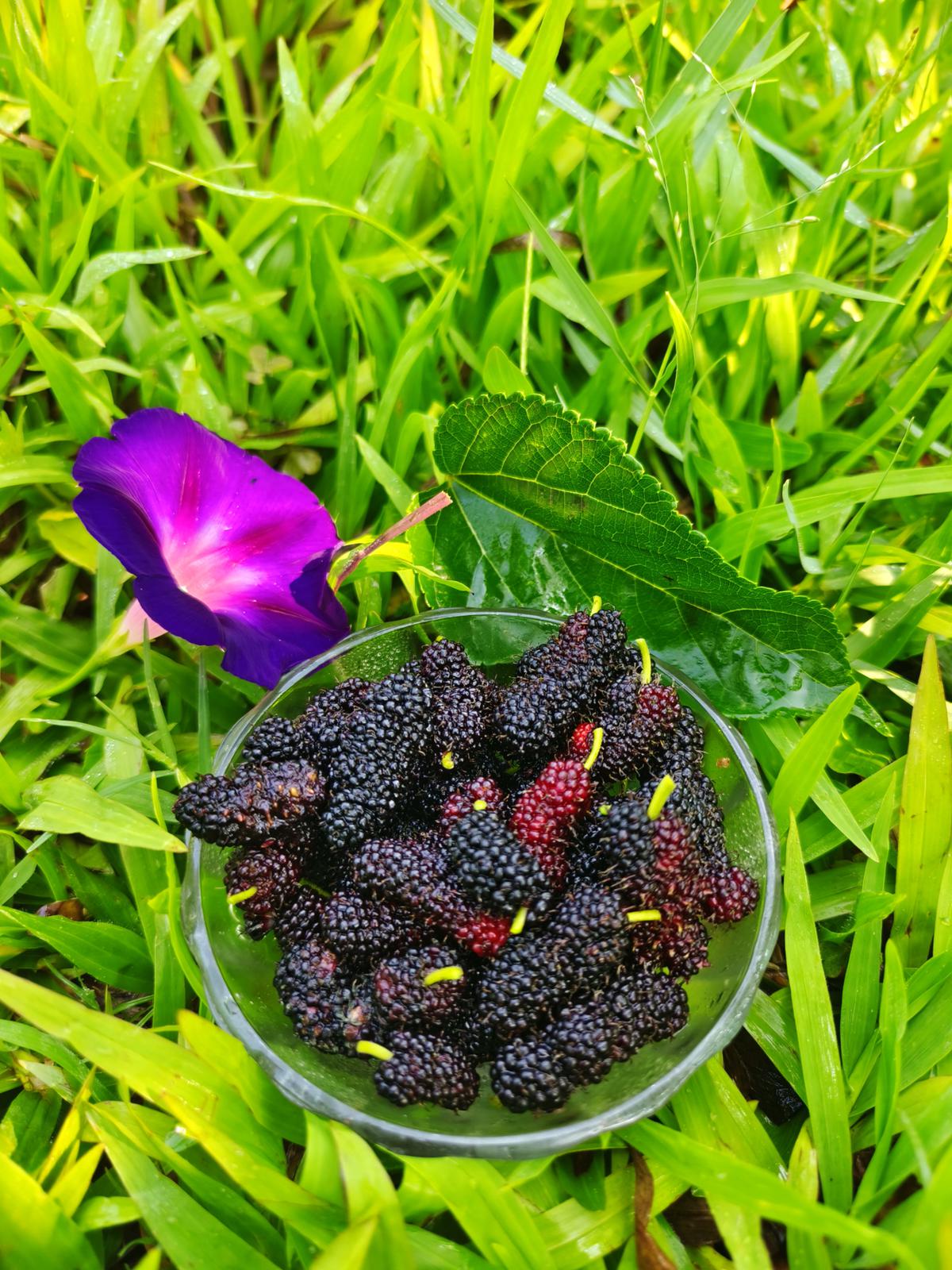
Mulberries at Savera Naturals
| Photo Credit:
Special Arrangement
The duo practice sustainable, regenerative bio-diverse, multi-crop natural farming, closely aligned with permaculture. “We focus on soil health and soil fertility rather than plant health,” says Merwin. Explaining their product categories, he says it comprises fresh produce (fruits, vegetables, spices), inhouse processed products (dried-powdered spices, herbs, filter coffee, essential oils, gluten-free flours, etc.), and homemade products (pickles, masalas, snacks, natural vinegars).
Fruit varieties include avocado, egg fruit, tropical cherries, kumquat, and rare native varieties like citron, Indian plum, and rare ape mangoes, among several others. Vegetables such as drumstick, sweet potato, tapioca, yam, and tree spinach, are cultivated as are over 20 varieties of spices and herbs.
Spice powders, essential oils, gluten-free free flours such as raw banana flour, jackfruit seeds flour, tapioca flour, and a range of ready-to-eat products are also sold. “The latter includes pickles from star fruit pickle, citron pickle, etc as well as vegan kimchi, vinegar varieties like palm sap vinegar, snacks such as ragi-cacao laddus, date seeds coffee, to name a few.”
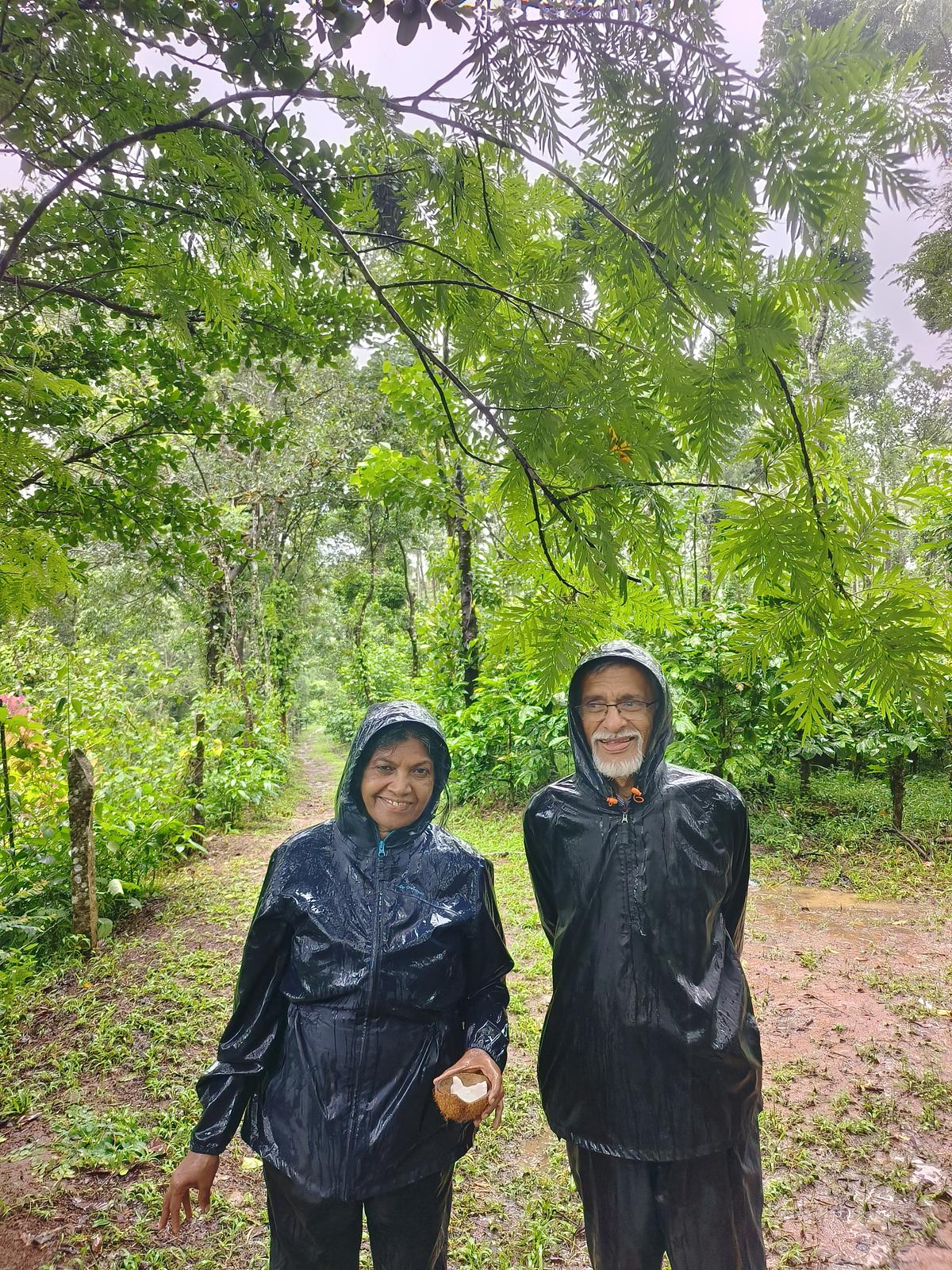
Regina and Merwin Fernandes
| Photo Credit:
Special Arrangement
Merwin, who also runs a farm stay, and hosts events, workshops, and retreats, says their objective “is to provide urban people, caught up in the grind of modern life, a flavour, and taste of natural living”. For instance, at their flagship workshop/retreat ‘Let food be thy medicine’, they try to “uncover scientifically proven links between our food-lifestyle and the epidemic of chronic diseases”. “Guests stay in sustainably-built natural cottages, consume plant-based food based on fireless and oil-less cooking, and participate in nature walks, mud baths, etc.,” he adds.
However, running a farm is not easy. Getting stable and reliable labour is the biggest challenge, along with increasingly unpredictable erratic rainfall and weather patterns caused by climate change, he shares. As for the products, creating a market “on a non-existent budget and no external funding adds to the challenge”. “Processing without the use of any chemicals — preservatives, additives, stabilizers, colouring — and using sustainable packaging isn’t easy,” Merwin explains.
saveranaturals.in
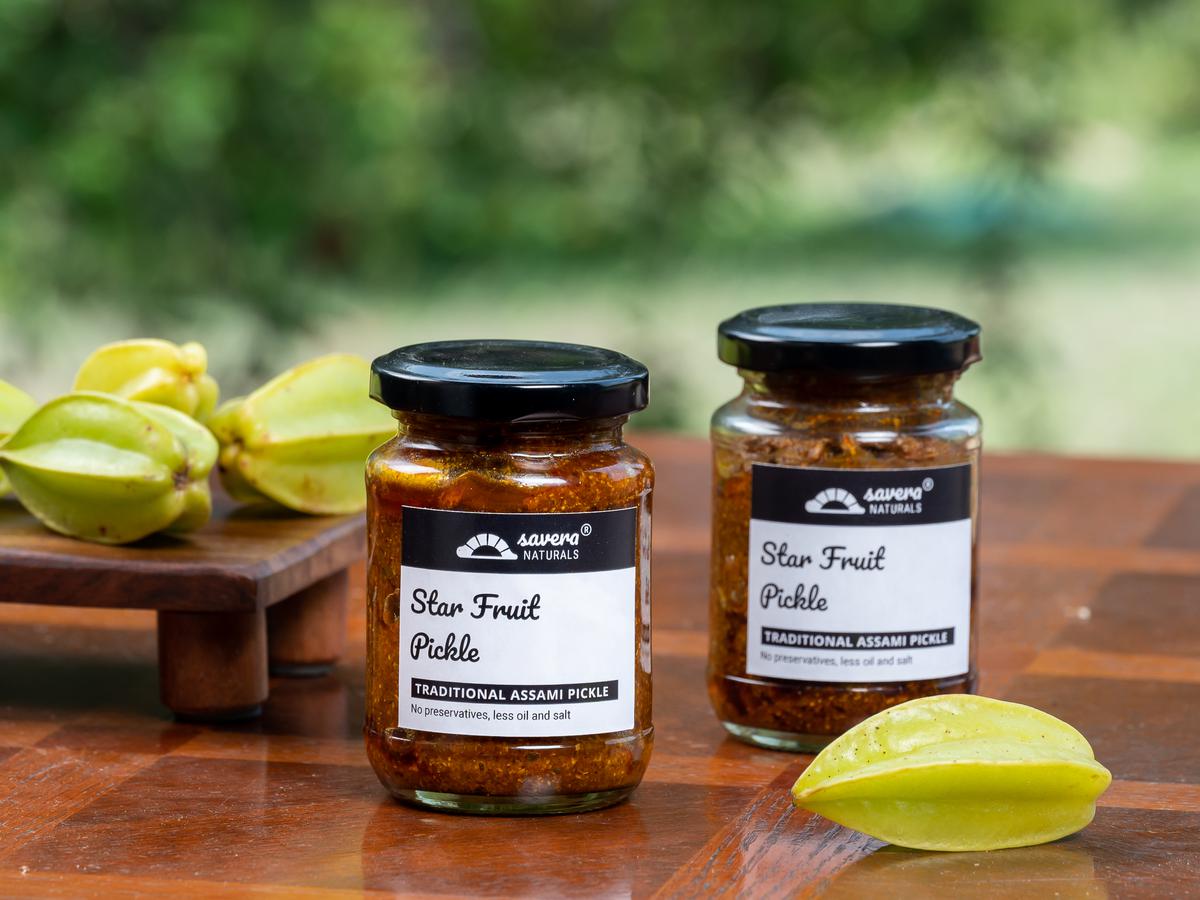
The range of ready-to-eat products at Savera Naturals includes star fruit pickle, citron pickle, vegan kimchi, etc.
| Photo Credit:
Special Arrangement
Sharanya Rajendran @ Svastya Organic Farms
After spending eight years in IT, Sharanya Rajendran quit the industry in 2019 to pursue her childhood passion for farming. Svastya, her women farmer-owned enterprise, was founded, “with the objective of making chemical and pesticide-free food products with the produce we grow on our farms”.
Sharanya explains how she comes from a family where agriculture has been the way of life. “My forefathers have been practicing natural farming for several generations now. While my childhood dream was to get involved in agriculture, I ended up entering the corporate world,” says the Christ University graduate who now runs the 25-acre farm in Lokkanahalli.
Sharanya Rajendran at her farm’s oil processing unit
| Photo Credit:
Special Arrangement
But it was her move to Bengaluru in 2009 that changed things. “Naturally-grown food seemed to be completely out of bounds for people living in the city. I decided to offer products crafted by the women in my family,” says the 30-year-old. Value-added products include A2 ghee, wild forest raw honey, wild forest chinna nadan turmeric, organic cold-pressed oils such as coconuts, groundnuts, almonds and organic jaggery powder, among others.
Sharanya explains how they are strong advocates of natural farming, and follow ancient Indian farming principles such as the use of animal waste (cow dung, panchagavya, gaumutra) and herbal juices (jivaamrutha) for controlling pests and promoting plant growth.
The range of products at Svastya Organic Farms
| Photo Credit:
Special Arrangement
“The idea is to let nature play a dominant role,” she says. However, the process comes with its own set of challenges. “We need to grapple with increasingly unpredictable weather, putting together an effective marketing channel, and labour shortages. Also, organic farming takes more effort and less yield, resulting in higher product costs. It is difficult to educate the community, thus we need a large number of individuals to enter the farming sector,” concludes Sharanya.
svastyaorganicfarms.com
Nandini and Kishan Hebbar @ House of Neria
Hailing from a family with roots in traditional agriculture, Nandini Hebbar and her musician brother Kishan, found themselves requesting parcels from their village, “because the store-bought honey or turmeric could never match up to the flavours or quality of what we were used to,” says Nandini, a trained anthropologist. This was two years ago, and since then, the duo has worked on creating a farming-based future.
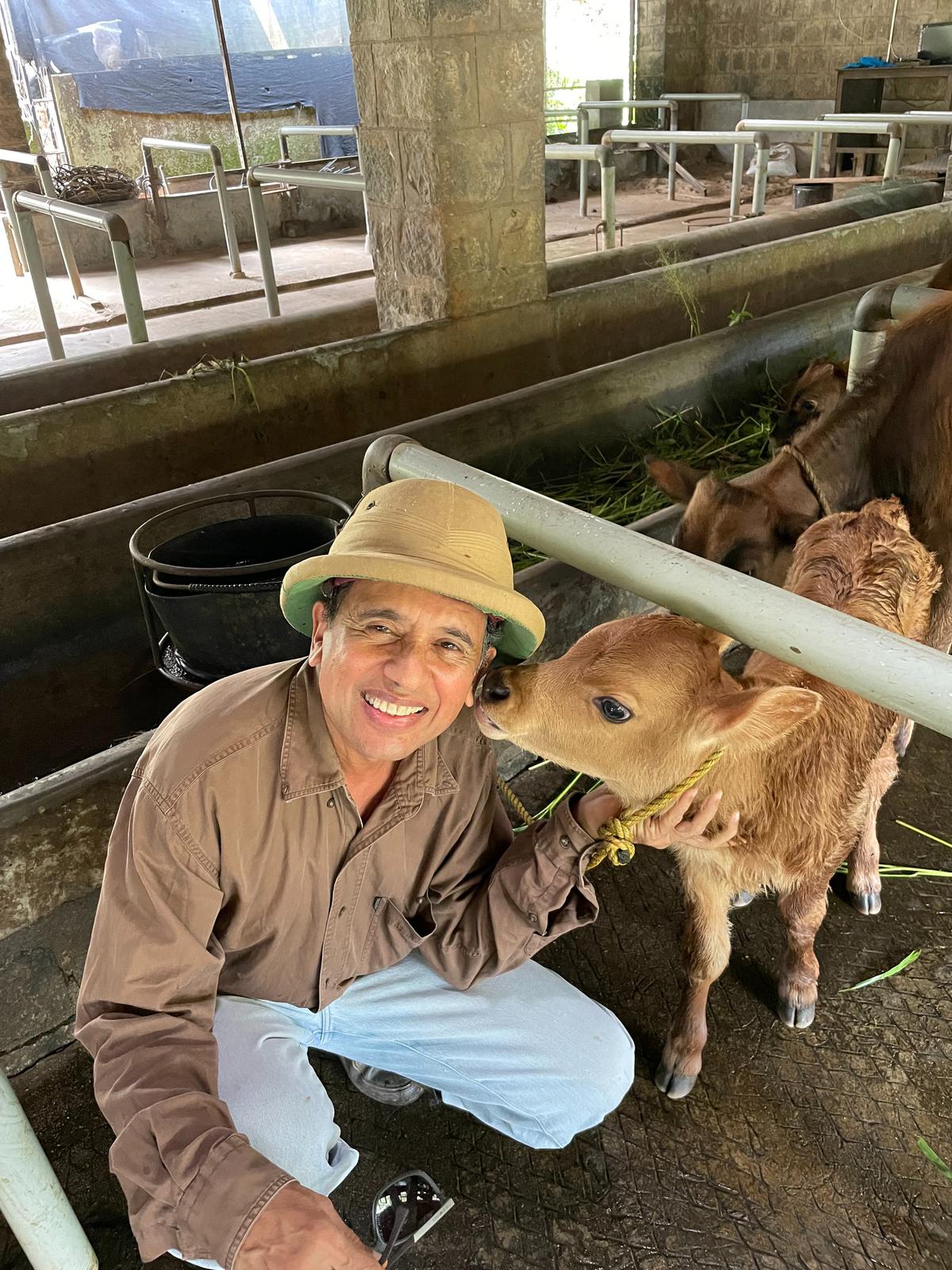
Dr G K Hebbar
| Photo Credit:
Special Arrangement
“Our father, Dr G K Hebbar, an ENT surgeon, and uncles, Radhakrishna Hebbar and Suraj Hebbar, were our inspiration,” she says, explaining how their father took to farming at 60, dedicating weekends and savings to revive their traditional coconut and areca plantation nestled in the Belthangady taluk of Charmadi Ghats. Influenced by Masanobu Fukoka’s natural farming practice, they focussed on soil health through organic methods and bee cultivation for pollination. “Dad’s vision laid the foundation for House of Neria.”
Having said that, Nandini admits that the traditional wholesale model for farm produce was not sustainable due to climate change, labour migration, and corporate competition. “Our solution was straightforward: connect directly with customers, and we envisioned providing harvest-driven, single-source, small-batch produce to their doorstep,” she says of the farm where coconut, areca, cocoa, and spices such as turmeric, black pepper, ginger etc., are cultivated. “We also have large plantations of rubber and coffee.”
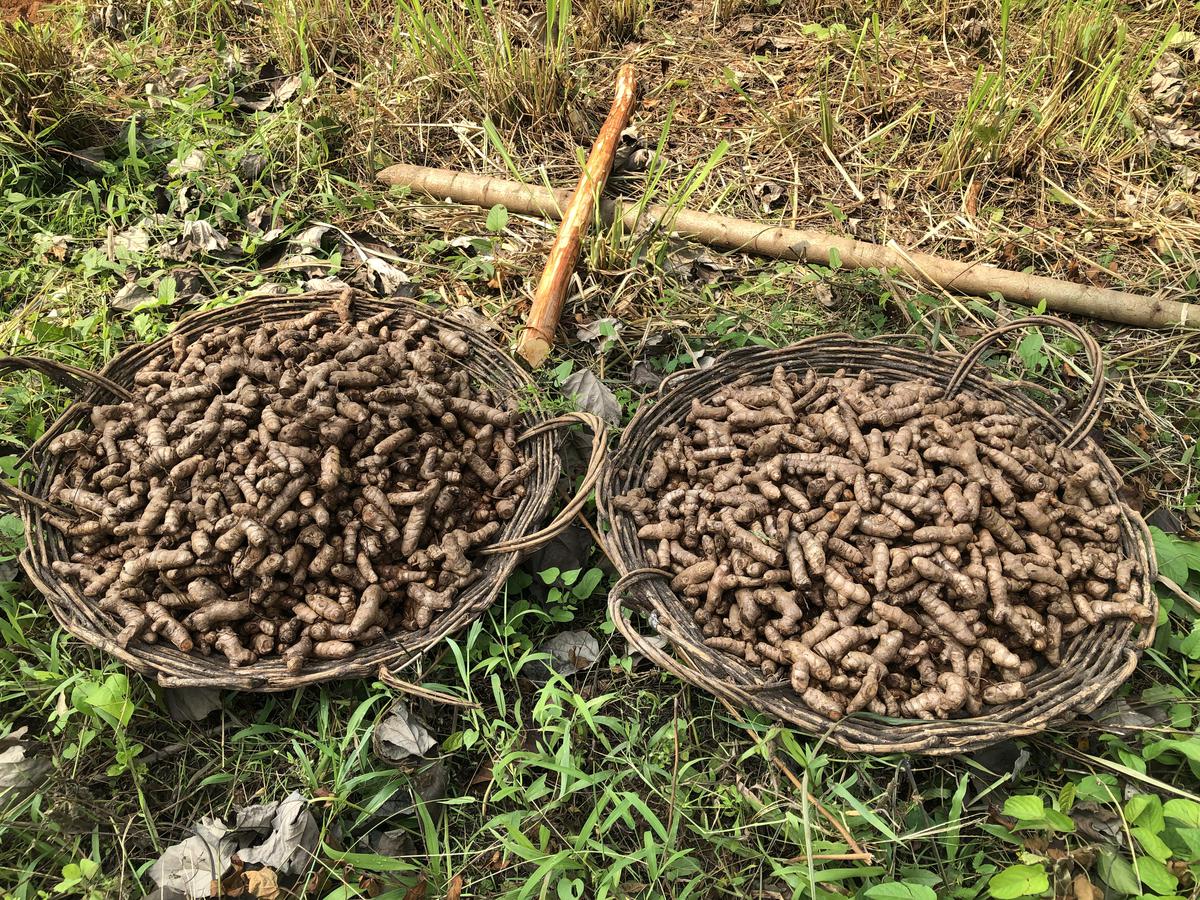
Harvested ginger at House of Neria
| Photo Credit:
Special Arrangement
Nandini explains how being farmers who wanted to go direct-to-consumer meant quick learning on processing produce. “For example, the process of turning our wet turmeric rhizome harvest into turmeric powder meant learning the process of cleaning, boiling, drying, polishing the rhizome before getting it powdered,” she says, adding how pest control in their biodiverse landscape is not easy.
While the brand started off with retailing raw honey, whole black pepper, dry ginger, and turmeric powder, the catalogue now boasts of cold-pressed coconut oil and a signature ragi malt drink, among other products.
@house.of.neria on Instagram